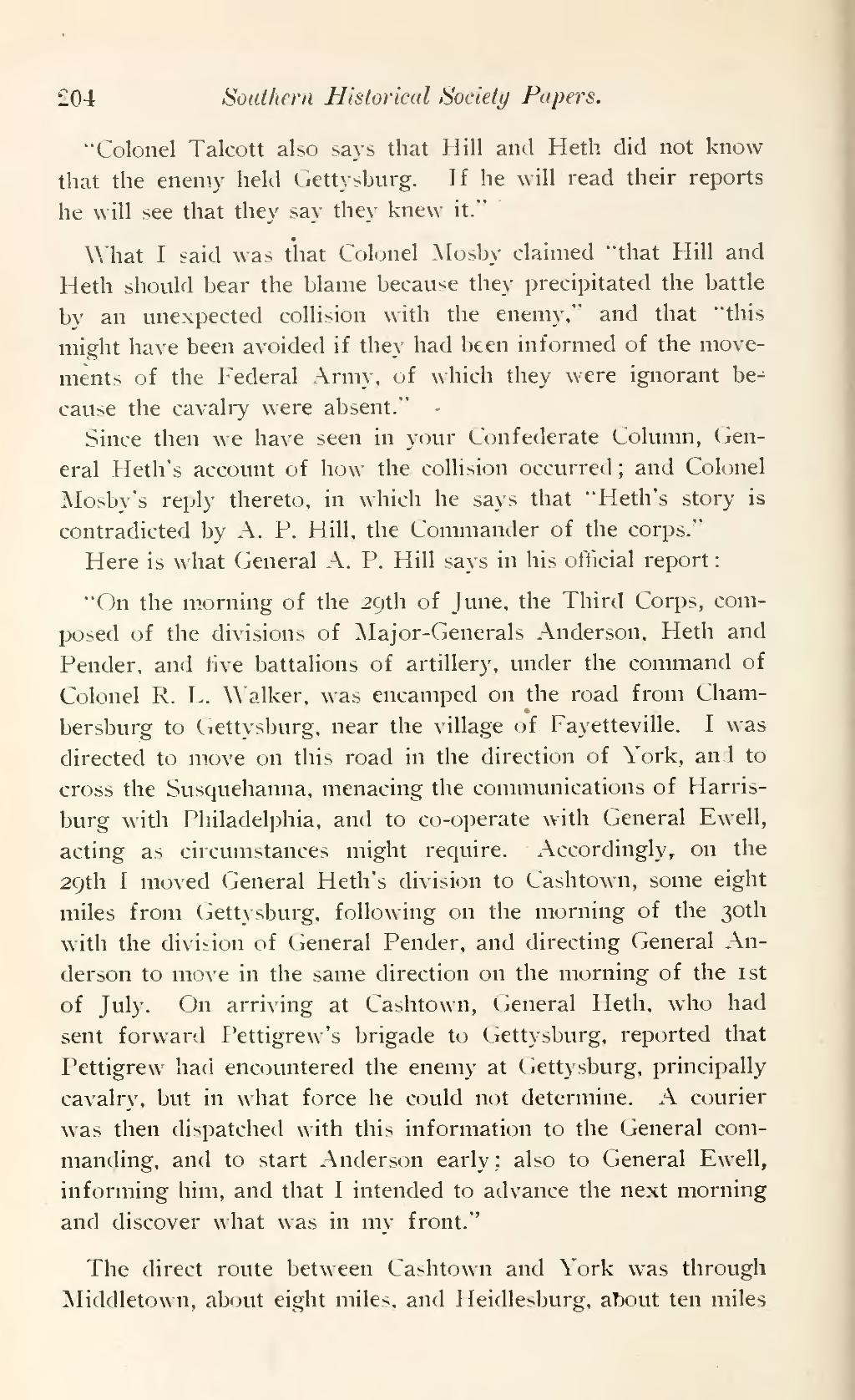"Colonel Talcott also says that Hill and Heth did not know that the enemy held Gettysburg. If he will read their reports he will see that they say they knew it."
What I said was that Colonel Mosby claimed "'that Hill and Heth should bear the blame because they precipitated the battle by an unexpected collision with the enemy," and that "this might have been avoided if they had been informed of the movements of the Federal Army, of which they were ignorant because the cavalry were absent."
Since then we have seen in your Confederate Column, General Heth's account of how the collision occurred; and Colonel Mosby's reply thereto, in which he says that "Heth's story is contradicted by A. P. Hill, the Commander of the corps."
Here is what General A. P. Hill says in his official report:
"On the morning of the 29th of June, the Third Corps, composed of the divisions of Major-Generals Anderson, Heth and Pender, and live battalions of artillery, under the command of Colonel R. L. Walker, was encamped on the road from Chambersburg to Gettysburg, near the village of Fayetteville. I was directed to move on this road in the direction of York, and to cross the Susquehanna, menacing the communications of Harrisburg with Philadelphia, and to co-operate with General Ewell, acting as circumstances might require. Accordingly, on the 29th I moved General Heth's division to Cashtown, some eight miles from Gettysburg, following on the morning of the 30th with the division of General Pender, and directing General Anderson to move in the same direction on the morning of the 1st of July. On arriving at Cashtown, General Heth, who had sent forward Pettigrew's brigade to Gettysburg, reported that Pettigrew had encountered the enemy at Gettysburg, principally cavalry, but in what force he could not determine. A courier was then dispatched with this information to the General commanding, and to start Anderson early; also to General Ewell, informing him, and that I intended to advance the next morning and discover what was in my front."
The direct route between Cashtown and York was through Middletown, about eight miles, and Heidlesburg, about ten miles
